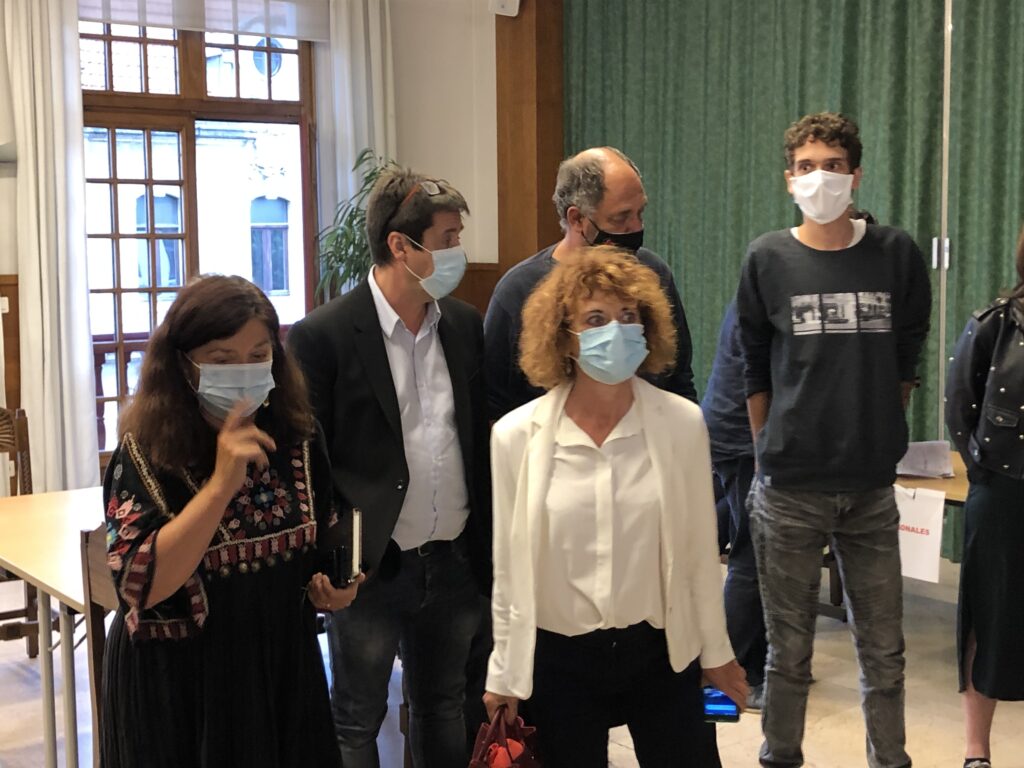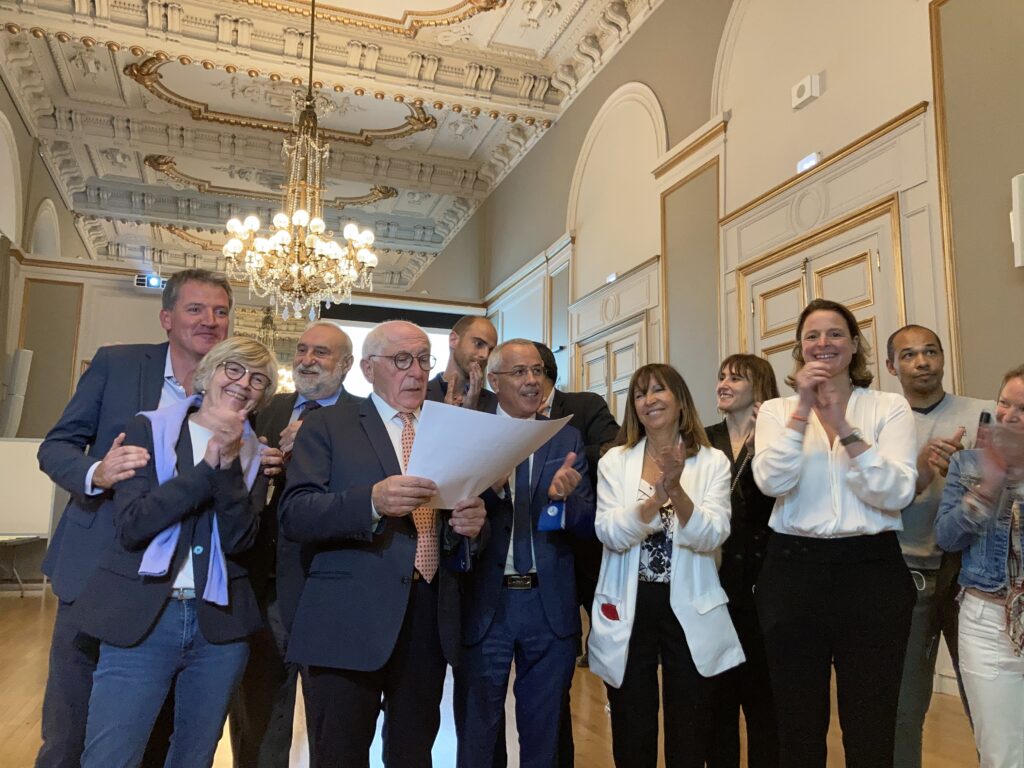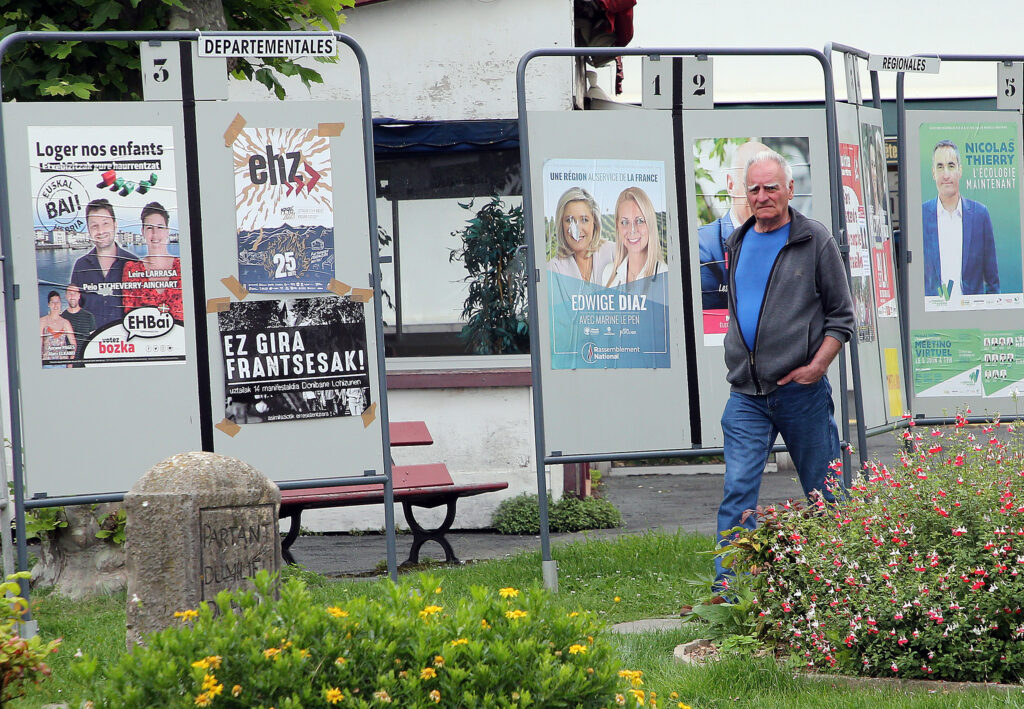The departmental and regional elections held in France, and also in Iparralde (the Northern Basque Country), have not brought about significant changes but have confirmed some of the tendencies that have been shaping the Basque framework in the last decade.
The Basque Country contributes 24 of the 54 elected members of the Departmental Council of the Pyrénées-Atlantiques, with headquarters in the so-called Parliament of Navarre, in Pau. This is a reference that goes beyond the architectural name of the building, since it speaks to its history, now that in the south of the Pyrenees Nafarroa berriz altxa (Navarre rises again) has resonated, commemorating the rebellion of 1521 and focuses sovereignty on the Navarrese agenda, 500 years after the Castilian conquest.

The so-called Departmental Majority, headed by President Jean-Jacques Lasserre, has won 22 of the 24 Basque seats up for grabs, a victory to which the strategy deployed by the veteran leader from Bidaxune (Nafarroa Beherea) to bring together the different centrist and conservative acronyms in the same candidacy, has contributed greatly.
The difficulties in designing a common project have, on the contrary, harmed the left-leaning party throughout France, to the point of remaining without representation regarding the Basque part of the Department in which the Northern Basque Country shares administration with the Béarn region.
Thus, the Basque section of the Socialist Party (PS) and its allies have lost the six departmental councilors they had since 2015, when the socialists ceded the departmental government to the center-right. This is the second defeat in a short time for its section that of the province of Lapurdi (the most populous of the Northern Basque Country), which already failed in its goal of elevating Henri Etcheto to the Mayor’s Office of Bayonne a year ago. This is a new and harsh setback that promises to deepen a crisis that has a lot to do with the lack of receptivity that the leadership of this party has shown with regard to issues that generate a broad consensus in the Northern Basque Country, and that range from the promotion of the Basque language and culture to the institutionalization of the three territories.

During the six-year legislature that began this past July 1st, the Basque sovereigntist left is represented in the Council of Pau by the two representatives of the sovereigntist left party, Euskal Herria Bai, which earned representation in the canton of the coast of Lapurdi formed by Hendaia, Urruña and Biriatu, a milestone for this formation that has been become the second electoral force in the three territories of the Northern Basque Country, in elections marked by an abstention of more than 60%.
Although in the broad French picture the desertion of voters has been more pronounced, it does not mean that it’s not necessary to research the deepest reasons for disaffection which the health context has exacerbated but whose root causes refer to the open gap between society and governmental representative bodies.
In the same electoral call, held in two rounds on June 20th and 27th, the voters of Nafarroa Beherea, Zuberoa and Lapurdi were also called to elect their representatives in the regional council of New Aquitania, a macro-region of more than six million inhabitants in which the Department of the Northern Basque Country is part of.

The electoral campaign was apathetic, with a historic abstention. Mediabask – Bon Edme
Not surprisingly, the socialist Alain Rousset won a comfortable majority, which will allow him to govern in Bordeaux with his own allies, since unlike what happened in the previous elections of 2015, this time he has reached almost 40% of the votes, which gives him access to the winner’s premium, directly bringing him an additional 25% of the seats. This way, he will not need alliances with forces further to his left or with environmentalists.
Only the country-wide formations have presented candidacy in these regional elections, in which, despite everything, the peculiarity of the scenario in the Northern Basque Country has once again become evident in the form of the lack of support for the ultra-right. Its candidacy managed to reach second place in the region as a whole, however without making the results promised by the polls. On the contrary, it was the fifth (and the one that received the fewest votes) among the Basque electorate.
Cover photo: Winner Jean-Jaques Lasserre moments before casting his vote. Mediabask – Guillaume Fauveau


Be the first to comment on "The Majority is Strengthened and the Sovereigntist Left Improves Results"